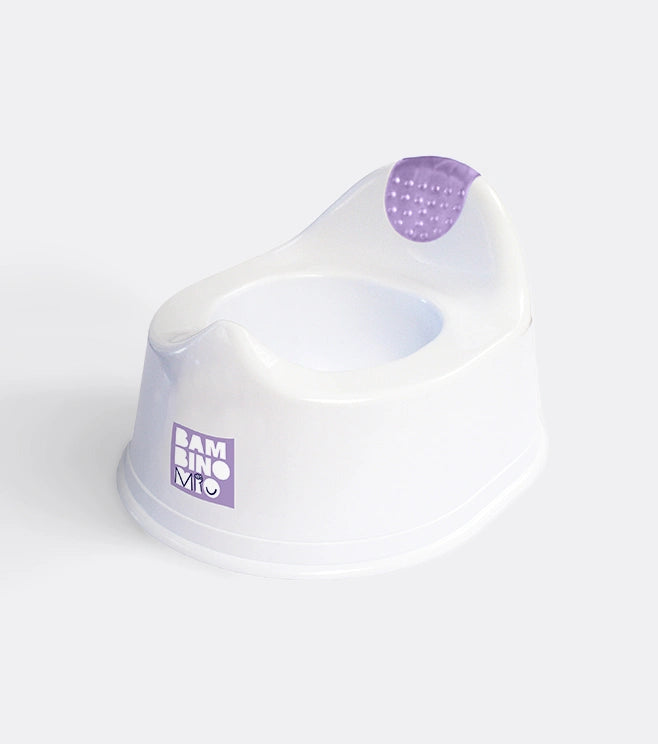Your First OB-GYN Appointment: What Happens?
Share Options
- Bambino Mio
- 15 / 11 / 2023

Inside this Article:
- I’m more than 10 weeks pregnant; what should I do?
- Where does the first prenatal appointment take place?
- How long does the appointment last?
- What your OB-GYN will ask you about
- Your OB-GYN is there to help you
- The tests at your first appointment
- Other things your OB-GYN may discuss with you
- Citations and References
When you find out that you’re pregnant there’s probably a few people you can’t wait to tell, but among the excitement, one of the first people you need to call is your doctor.
Your doctor will in turn help you to book your first OB-GYN appointment.
Your first prenatal appointment is important because it’s your first contact with your antenatal care team, with whom you’ll become very familiar over the next few months!
This appointment should happen between six and 12 weeks of pregnancy as your OB-GYN will offer you some screening tests (1) which should ideally be done before then.
I’m more than 10 weeks pregnant; what should I do?
If you’re more than 10 weeks along in your pregnancy and you haven’t contacted your doctor or seen an OB-GYN then don’t worry as it’s not too late to have your first prenatal appointment and get your early tests done.
Where does the first prenatal appointment take place?
Depending on where you are and how your healthcare provider’s pregnancy services are delivered, your first prenatal appointment may happen at:
- Your doctor’s office
- Your OB-GYN’s office
- Your home
How long does the appointment last?
Your first prenatal appointment usually takes between 45 minutes and one hour.
What your OB-GYN will ask you about
Your midwife or OB-GYN will need to get to know you better so they can find out what sort of personalized care you might need.
Your midwife might ask you about:
- Who you live with and where
- Your baby’s father
- Any previous pregnancies and children
- Whether you smoke, drink alcohol or take any drugs, herbal medicines or prescription medication
- Any physical or mental health issues you have and also about any past or current treatments
- Any health issues within your family history, including genetic illnesses
- Domestic abuse
- Female genital mutilation (FGM), as FGM can cause problems during labor and delivery, so your antenatal team will need to know if it’s happened to you
- Your job, as some jobs may carry extra risks for pregnant women and their babies
- Your support network, including your partner and family members
Your OB-GYN is there to help you
If there’s anything you’re worried about, such as a miscarriage in a previous pregnancy, discrimination at work or problems at home, then your prenatal appointment is your first chance to talk about it.
Your antenatal care team is there to help you and they won’t judge you for any issue you might raise with them.
The tests at your first appointment
You OB-GYN will also:
- Work out your body mass index (BMI) by measuring your height and body weight
- Measure your blood pressure and take a wee sample to test your urine for protein, which can be a sign of preeclampsia (2) and for sugar, which can indicate diabetes
- Perform a pelvic exam and examine your breasts and abdomen
- Take some blood to test for your blood group, HIV, hepatitis B and syphilis
You may also be offered blood tests for thalassemia and sickle cell, which are blood disorders that can be passed on to your baby. Your OB-GYN may ask you about your ethnic background to work out your risks of various potential problems.
Other things your OB-GYN may discuss with you
Your midwife may also offer you information on:
- Your baby’s development
- Maintaining a healthy diet and which foods to avoid while you’re pregnant (3)
- Exercise during pregnancy (4), including pelvic floor exercises
- Your antenatal and maternity care schedule (5)
- Breastfeeding and local support groups
- Antenatal classes
- The options you have for where to have your baby, such as a birth center, in hospital or at home
- Any further tests you may have during your pregnancy
If there’s anything you’re not sure about or don’t understand, then ask your OB-GYN about it.
You can also ask your doctor or midwife about things like using reusable diapers, local pregnancy yoga classes and any support groups you might be interested in.
Citations and References
(1) American College of Obstetricians and Gynecologists (ACOG). ‘Prenatal Genetic Screening Tests.’ 2021. Web. www.acog.org/womens-health/faqs/prenatal-genetic-screening-tests
(2) Cleveland Clinic. ‘Preeclampsia.’ 2021. Web. my.clevelandclinic.org/health/diseases/17952-preeclampsia
(3) Cleveland Clinic. ‘Nutrition During Pregnancy: Foods to Include and Foods to Avoid.’ 2023. Web. health.clevelandclinic.org/pregnancy-diet
(4) American College of Obstetricians and Gynecologists (ACOG). ‘Exercise During Pregnancy.’ 2023. Web. www.acog.org/womens-health/faqs/exercise-during-pregnancy
(5) Cleveland Clinic. ‘Pregnant? Here’s How Often You’ll Likely See Your Doctor.’ 2022. Web. health.clevelandclinic.org/prenatal-appointment-schedule






























